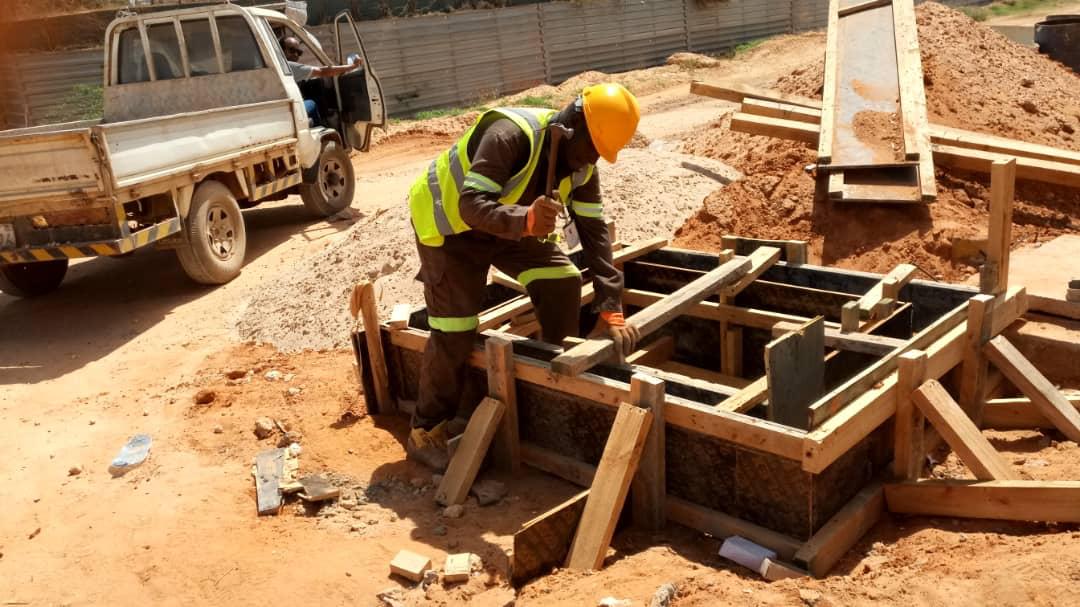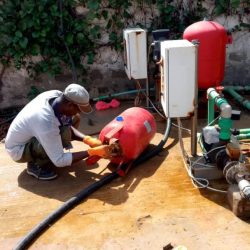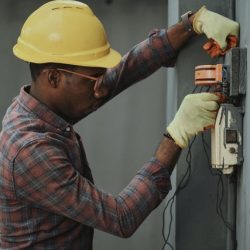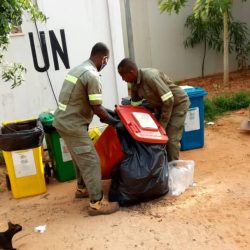Deeqa is currently implementing a contract to provide facilities maintenance/repair and ground maintenance services within various UNSOS/AMISOM locations in Somalia. This is the largest facility management program in the country and covers all nationwide facilities of UNSOS. Deeqa’s services in this project include but are not limited to, facilities maintenance and repairs service, minor ground engineering, up-gradation, and minor construction works, emergency response service.

Project Summary:
| Donor/Client | UNSOS/AMISOM |
| Duration | 2017-Present |
| Location | Mogadishu and six sites |
| Type of Service | Facility Management |
| Partner(s) | None |
Services Management
DEEQA provides all personnel, equipment, tools, supervision, and other items and services deemed necessary to ensure that the above services are delivered in an efficient and timely manner. Deeqa has its compound within the UNSOS premises that include offices, warehouses, accommodation of staff, and facilities for project operation. Deeqa’s strategic overseas offices have played a crucial role in the success of this project. The scope of work covers mainly the following four services to be provided:
- The Routine Maintenance and Repair Service
- Routine Maintenance & Repair within normal wear & tear
- Routine Repair beyond normal wear & tear
- Preventive Maintenance and Overhaul
- Requested Repair and Upgrade Works iv.
- Emergency Response Service
Quality Control
These services are in line with international standards for quality, environmental management, health and safety; and supply chain management. As part of this project, Deeqa personnel have several interactions with end-users of the UNSOS facilities. Hence, Deeqa has a strong component of customer care to ensure quality includes customer satisfaction and professionalism in service delivery. As part of this initiative, DEEQA receives emails from UNSOS staff after a task is delivered. This email usually includes their feedback and DEEQA analyzed those emails to generate the general satisfaction level for its internal monitoring and evaluation. Below chart shows the analysis of emails received from UNSOS after completion of a task:

Team Management
DEEQA has several years of experience in the management of complex projects and services. The company ensures a clear and effective team structure to ensure the delivery of expected outputs and outcomes. For this project, the responsible teams are in four levels: DEEQA Headquarter; Program Management; Project Management; Site Teams (this, in turn, includes the project management team, checker team, task execution team). DEEQA headquarter includes the CEO, Directors of finance, administration, contract and compliance, and the remainder of the executive team. The program management team includes the designated program manager, the QC manager, safety and environmental protection officer, and compliance officer. This includes the project manager, deputy project manager, and liaison officer. The site teams include site managers, site liaison officers, QC inspectors, technical supervisors, and skilled laborers for various services. Each team has its assigned milestones, activities, and tasks. They work in a coordinated manner to ensure each level is supporting the frontline workers to deliver the best quality work output.
Logistics Management:
Deeqa manages the flow of materials/consumables between the point of origin and the point of consumption in order to meet some materials requirements at facilities needed to be installed and replaced. The logistics of physical items usually involves the integration of information flow, material handling, production, packaging, inventory, transportation, warehousing, and often security in volatile areas.
The Warehouse Officer is responsible that maintenance materials shall always be available and maintained at the lowest possible materials in the storehouse. Deeqa takes care of proper handling and storage of materials its distribution, consumption, and final disposal at the warehouse.
Environmental Management System
DEEQA is committed to providing unparalleled standards and quality of service to all its customers. DEEQA believes that this can and must be done in a way, which protects and enhances the environment. It is a fundamental part of DEEQA business policy that is aimed to avoid losses and maximize benefits. It follows that DEEQA must minimize adverse environmental effects arising from DEEQA’s business activities and promote a positive attitude to the conservation and enhancement of all aspects of the environment. Environmental factors will be taken into consideration in DEEQA business planning and decision-making.
Conservation and Sustainability
Within the business activities DEEQA endeavors to set an example of responsible Environmental Management and Conservation, including active re-cycling of materials wherever practical. The company will comply with all the relevant legislation and adhere to the principles of the prevention of pollution during design and operational performance. Arrangements to achieve these targets include the following:
- Awareness and use of appropriate technology for the conservation of energy.
- The use of materials from sustainable and responsibly managed sources, which do not necessarily pollute or deplete the world’s natural resources.
- A purchasing procedure considering environmental impacts.
- Minimize the use of non-sustainable natural resources; and
- Minimize waste through an effective waste management system.
DEEQA has established an environmental Management system complying with the international standard ISO 14001. This includes systems to assess the environmental impact of DEEQA’s operations and the provisions of appropriate levels of training and information to support environmental aims and objectives. DEEQA encourages each and every employee within the company to follow better examples, to take personal responsibility for environmental protection and enhancement within their own sphere of responsibility to standards that are commensurate with the high standards set by the company. DEEQA works with subcontractors and suppliers to improve their environmental performance. This requires DEEQA senior managers, operations, projects, and site managers to promote a culture of environmental management improvement in all parts of the business.




